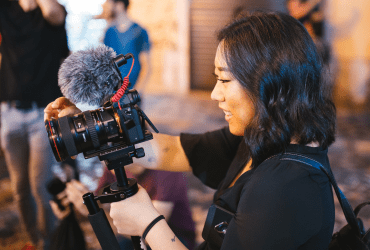(Washington) – During the past year and a half, more than twenty experienced reporters and news executives have mentored FIJ grantees, lending a hand in the reporting, writing and editing of their work.
The executive director of Investigative Reporters and Editors (IRE), Mark Horvit, recruits the mentors from the roster of IRE members. In so doing, he has lined up some of the biggest names in the investigative news business as volunteers.
The FIJ/IRE mentoring program is patterned on IRE’s longstanding initiative that pairs young and veteran journalists who meet one another at the annual IRE conference. In the case of FIJ grantees, many are themselves experienced reporters, but are working alone as freelancers and are grateful to have someone on-call to act as a sounding board.
Mentors make themselves available to brainstorm about how to get a specific piece of information or pry public records loose from uncooperative government agencies. And they often read or view stories before grantees submit them to an editor.
As one FIJ-supported freelancer described the value of a mentor: “Someone willing to read a first draft, before it goes to the magazine, [is] like manna from heaven.”
The mentoring relationship typically lasts the duration of the project, but for Wanjohi Kabukuru of Kenya and mentor Ron Nixon, a New York Times reporter, it has been extended beyond that. They’ve collaborated on two investigations.
Kabukuru consulted with Nixon as he investigated pesticides dumping and malaria vaccine experimentation for New African magazine.
Nixon’s editorial guidance helped “ensure solid investigations, proper language, objective analysis and accurate attribution,” said Kabukuru. When Nixon learned that both he and Kabukuru planned to attend a reporting conference in Africa, they made arrangements to meet in person. After the conference, Kabukuru sent a message to FIJ that discussing his work with Nixon “opened my eyes to whole new dimension of investigative journalism.”
Kristin Palitza, who wrote about child laborers in the tobacco fields of Malawi for the UK Guardian, brainstormed about ideas with mentor David Kaplan, editor at large for the Organized Crime and Corruption Reporting Project. Palitza said Kaplan helped “move the story from a Malawian issue to a story of international importance” and shared contacts with news organizations to help get the story
published.
“The program confirmed to me that even for mid-career journalists, it is of great value to have the support of a senior journalist and be able to benefit from his/her wealth of experience. It keeps you motivated, gives you new ideas and makes you push a little further,” said Palitza.
FIJ is grateful to the following mentors who have worked with grantees since the program began last year:
Sarah Cohen, Duke University
David Donald, Center for Public Integrity
Mark Feldstein, University of Maryland
Manny Garcia, El Nuevo Herald
Andy Hall, Wisconsin Center for Investigative Reporting
Dianna Hunt, Fort Worth Star-Telegram
David Kaplan, Organized Crime and Corruption Reporting Project
Kevin Keeshan, KGO-TV, San Francisco
Mike McGraw, Kansas City Star
Josh Meyer, Medill School of Journalism
Jim Neff, Seattle Times
Deb Nelson, University of Maryland
Chuck Neubauer, Washington Times
Ron Nixon, New York Times
Lois Norder, Fort Worth Star-Telegram
Judy Pasternak, Author
Robert Rosenthal, Center for Investigative Reporting
Fred Schulte, Center for Public Integrity
Andy Segal, CNN
Ken Silverstein, Harper’s Magazine
Adam Thompson, ProPublica
Steve Weinberg, Missouri School of Journalism
Alison Young, USA Today





Leave a Reply